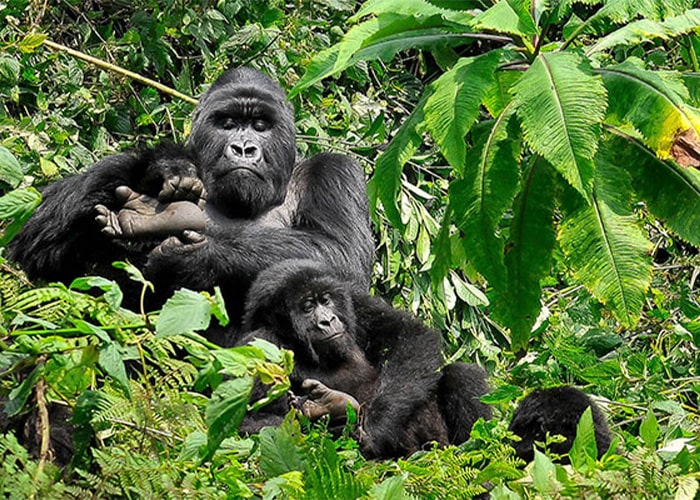
Chimpanzees: Photo: Internet
As the world gears up to celebrate World Wildlife Day today, Uganda stands at the forefront of efforts to connect people with the planet, particularly in the realm of wildlife conservation, and several success stories have been registered in that regard.
As of January 2022, Uganda’s wildlife enjoyed significant conservation success including strict protection measures, community involvement, and sustainable tourism, which have contributed to the steady increase in their numbers.
For instance, according to recent estimates, the mountain gorilla population in Uganda’s Bwindi Impenetrable National Park and Mgahinga Gorilla National Park has been steadily increasing, with over 600 individuals recorded in the region. This growth is attributed to rigorous conservation efforts, including anti-poaching measures, habitat protection, and sustainable tourism practices.
Similarly, in line with the World Wildlife Day 2024 theme, the country has made strides in connecting people to the planet.
One notable initiative is that UWA works closely with local communities living adjacent to protected areas to develop and implement community-based conservation initiatives. These initiatives involve revenue-sharing schemes, ecotourism ventures, and natural resource management projects that provide economic incentives for communities to participate in conservation efforts while promoting sustainable livelihoods.
Meanwhile, UWA operates revenue-sharing programs that allocate a portion of the revenue generated from tourism activities in protected areas to local communities. These funds are invested in community development projects, such as education, healthcare, infrastructure, and income-generating activities, benefiting communities and fostering support for wildlife conservation.
Conservation Education and Outreach: UWA conducts conservation education and outreach programs targeting schools, community groups, and the general public to raise awareness about the importance of wildlife conservation and environmental sustainability. These programs include environmental education curricula, community workshops, public lectures, and media campaigns that promote conservation ethics and behavior change.
However, some challenges continue to affect the authority’s efforts to connect people to the planet. They include Population Growth and Urbanization: Uganda has one of the highest population growth rates globally, leading to increased pressure on natural resources and ecosystems. Rapid urbanization exacerbates environmental degradation, deforestation, and habitat loss as cities expand and infrastructure development encroaches on wildlife habitats.
Poverty also remains widespread in Uganda, particularly in rural areas where communities depend heavily on natural resources for their livelihoods.
Climate Change Vulnerability: Uganda is highly vulnerable to the impacts of climate change, including extreme weather events, erratic rainfall patterns, and rising temperatures. Climate variability affects agricultural productivity, food security, and water resources, exacerbating poverty and increasing the vulnerability of communities, particularly those dependent on rain-fed agriculture and natural ecosystems.
Lastly, limited awareness of environmental issues, climate change impacts, and sustainable practices hinder efforts to promote conservation and sustainable development. Inadequate environmental education and outreach programs limit public engagement and community participation in conservation initiatives, undermining efforts to address environmental challenges effectively.
Therefore, addressing these challenges requires a multi-faceted approach that integrates environmental conservation, poverty reduction, sustainable livelihoods, and climate resilience strategies.
